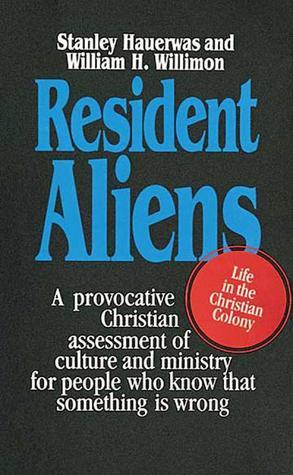What do you think?
Rate this book


175 pages, Paperback
First published January 1, 1989
America's Best Theologian according to Time Magazine (2001), though he rejected the title saying, "Best is not a theological category."
“That’s not true, and you know it’s not true. It is not hard for anyone in this church, for anyone in the neighborhood to put food on the table. Now there are people in this town for whom food on the table is quite a challenge, but I haven’t heard any talk about them. They wouldn't be using this day-care center. They wouldn't have a way to get their children here. This day-care center wouldn't be for them. If we’re talking about ministry to their needs, then I’m in favor of the idea. No, what we’re talking about is ministry to those for whom it has become harder every day to have two cars, a VCR, a place at the lake, or a motor home. That’s why we’re all working hard and leaving our children. I just hate to see the church buy into and encourage that value system. I hate to see the church telling these young couples that somehow their marriage will be better or their family life more fulfilling if they can only get another car, or a VCR, or some other piece of junk. Why doesn't the church be the last place courageous enough to say, ‘That’s a lie. Things don’t make a marriage or a family.’ This day-care center will encourage some of the worst aspects of our already warped values.”
What pastors, as well as the laity they serve, need is a theological rationale for ministry which is so cosmic, so eschatological and therefore counter-cultural, that they are enabled to keep at Christian ministry in a world determined to live as if God were dead. Anything less misreads both the scandal of the gospel and the corruption of our culture.